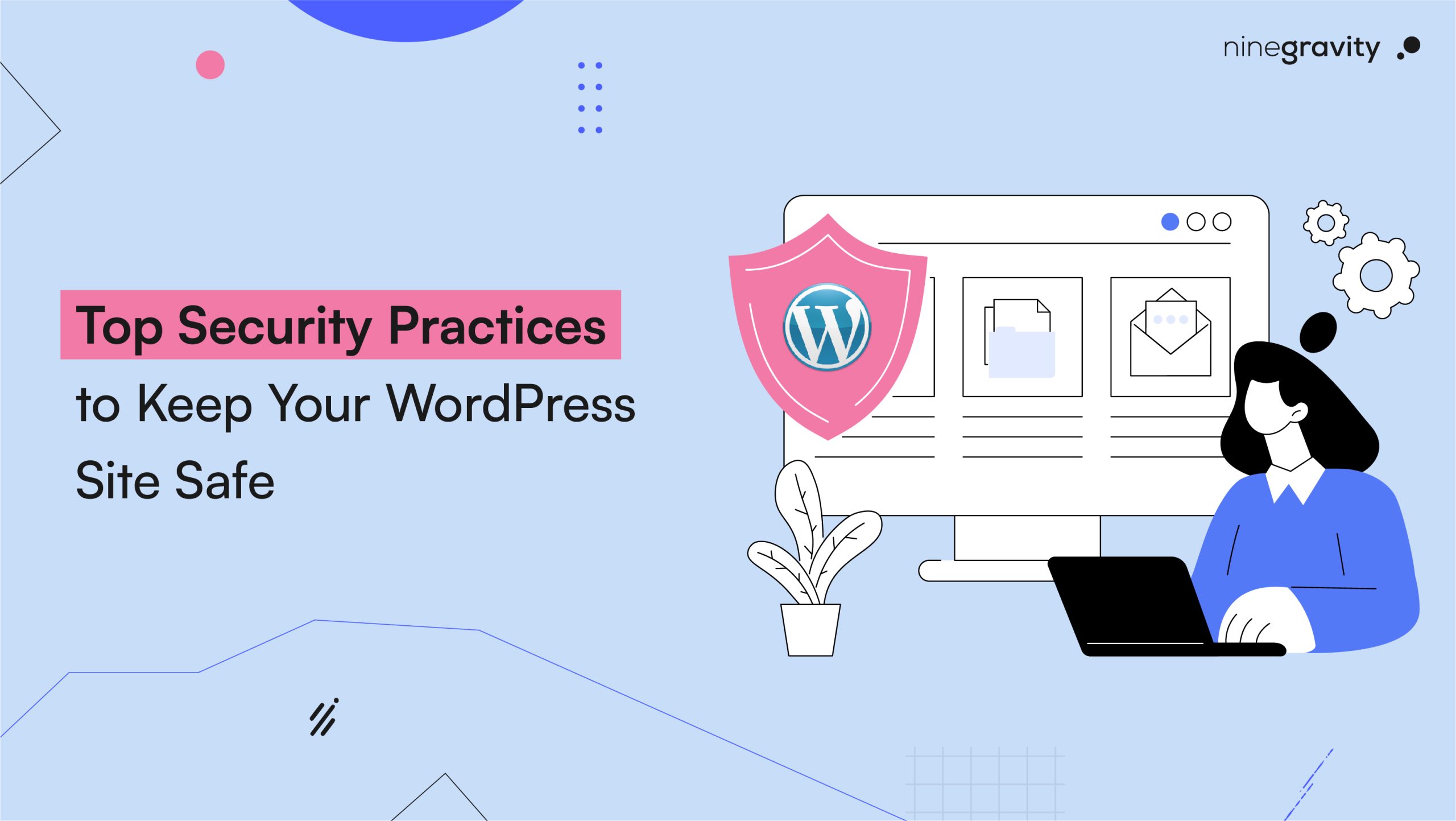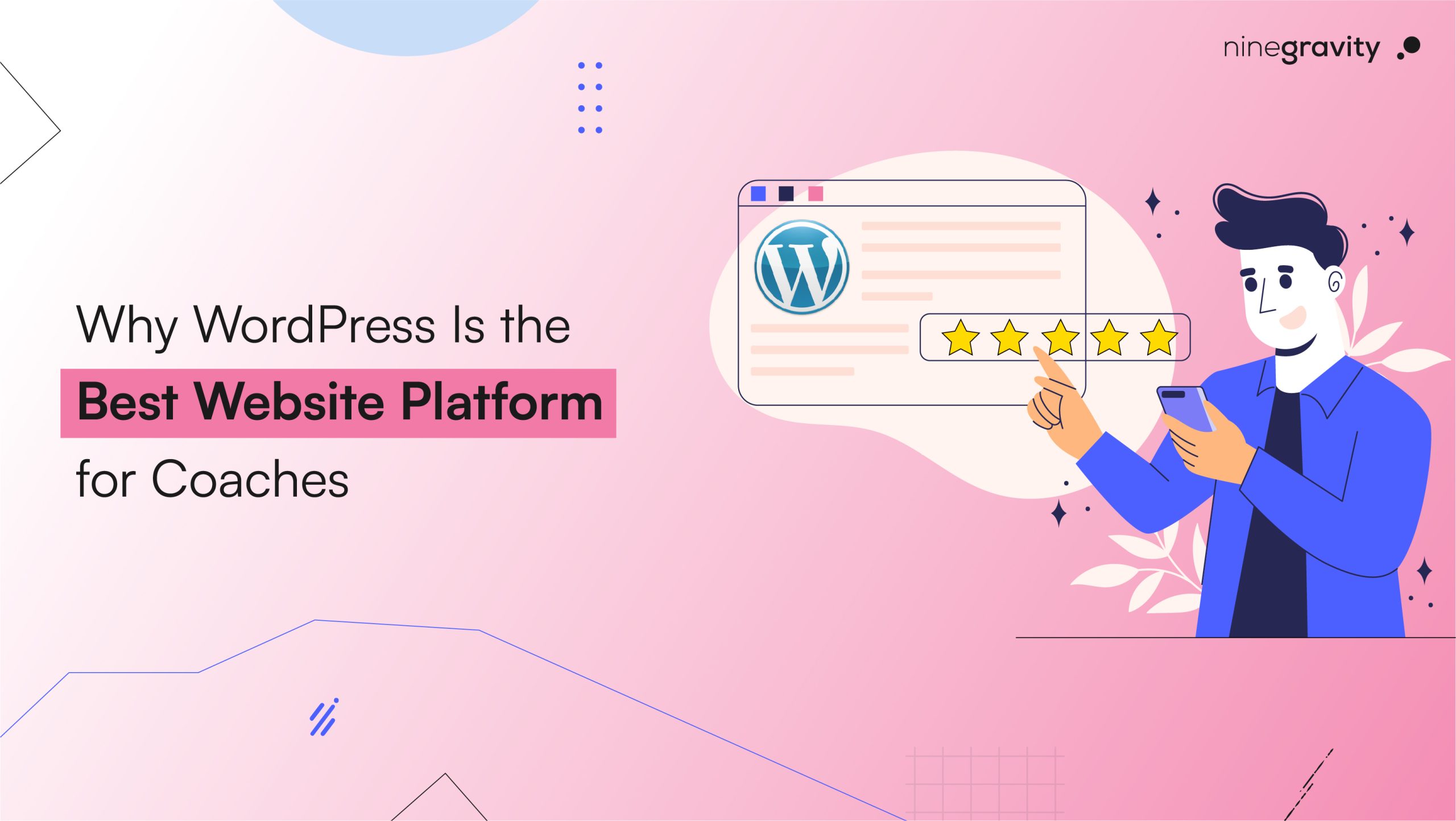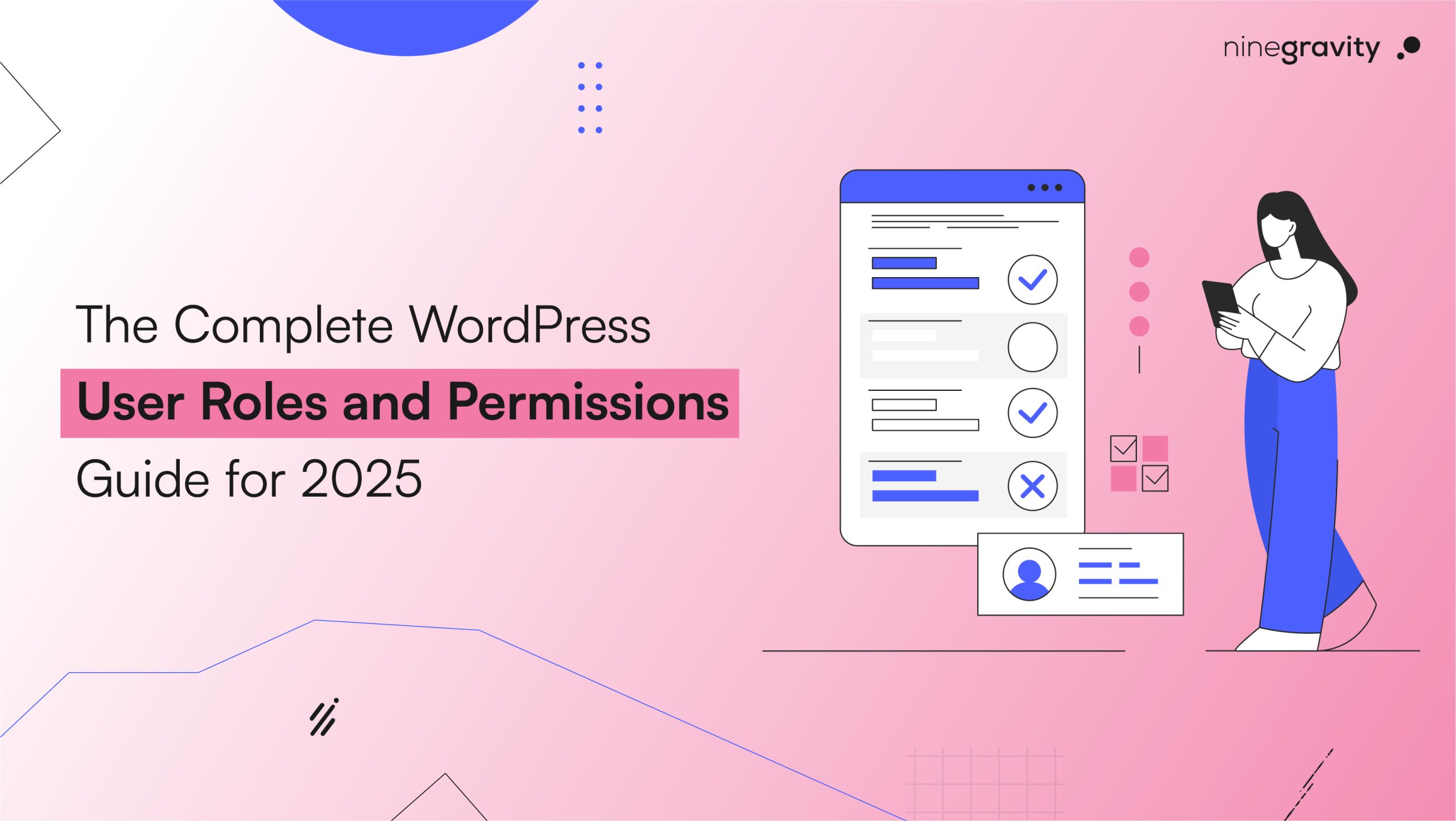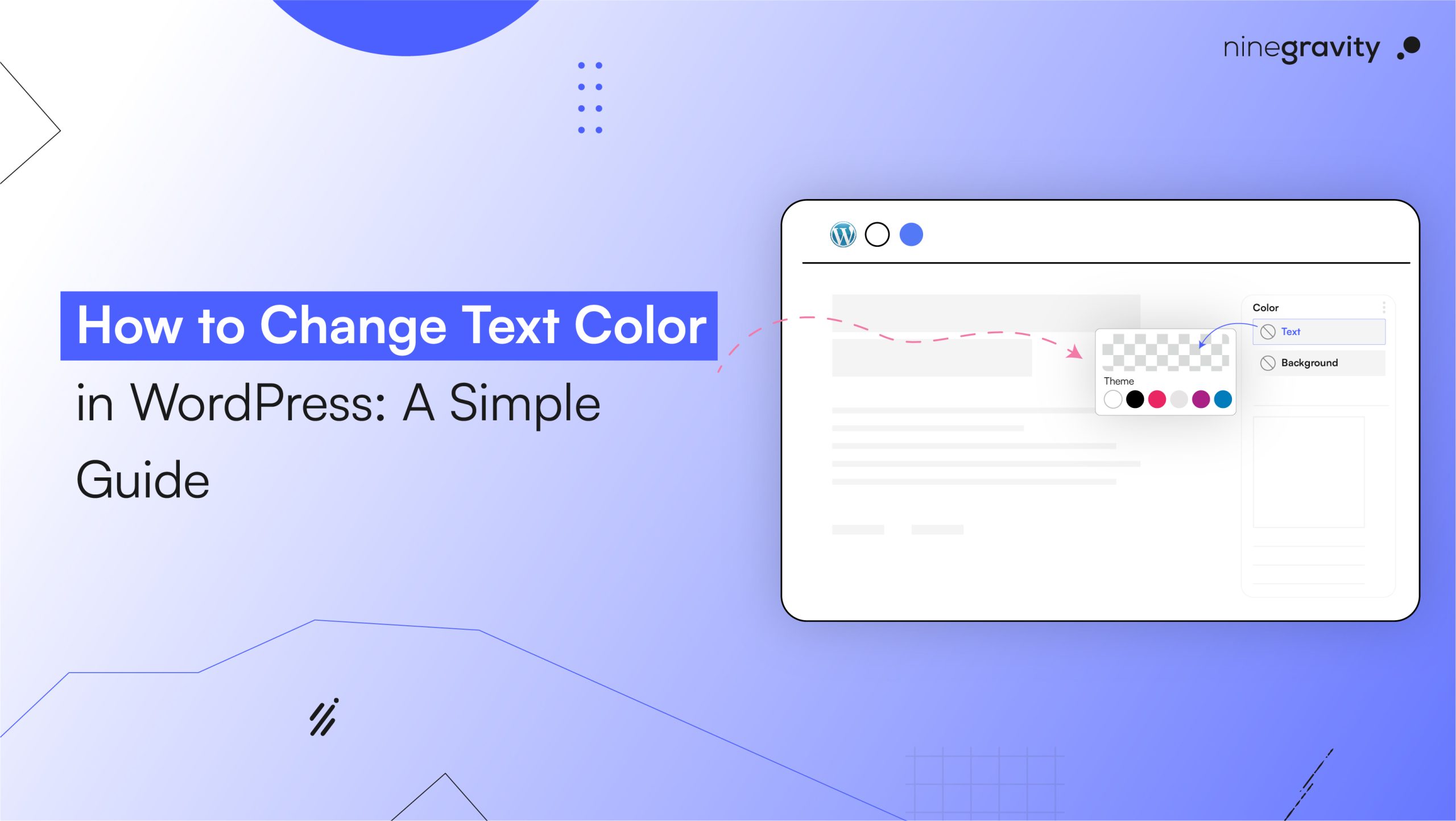WordPress small business website owners face more and more threats that could hurt their online presence in this digital age. WordPress is used by more than 43% of all websites in the world. This makes hackers very happy. People, data, and the picture of your business should all be kept safe on WordPress sites. It doesn’t matter if you have a business, a blog, or an e-commerce site.
In this guide, we follow WordPress security best practices to keep hackers out, reduce security risks, and protect your online presence. Whether you’re looking to hire a WordPress developer or secure your site, this guide covers everything you need to know.
Table of Contents
Why WordPress Security Matters for Small Business Websites
A WordPress site for a small business is often the online face of your brand. Data can be stolen, malware can be put on your site, and search engines may even ban it. If there is a security breach, you may even lose your whole site. Many WordPress sites are said to have WordPress vulnerabilities because they use outdated themes, weak passwords, or dangerous plugins.
To avoid costly downtime and keep customers trusting your site, WordPress site protection steps are essential. If you follow a WordPress security checklist, your site will be much better.
Understanding Common WordPress Security Risks
To get started, let’s go over the most common WordPress security risks:
- Outdated WordPress Version: You are leaving yourself open to known security holes if you use an older version of WordPress. Always have the latest WordPress version loaded to stay protected.
- Weak Passwords and User Roles: Attackers can easily get in because passwords are too easy to guess and users have too many rights.
- Insecure Themes and Plugins: Vulnerabilities often come from plugins and themes that are badly written or out of date.
- Lack of Security Plugins: If you don’t have the right WordPress security plugins, your site doesn’t have any tools to protect it, like firewalls and malware checkers.
- Brute Force Attacks: Hackers keep trying to get in to find out your passwords.
- Malware and Injection Attacks: Malware can get into your site through plugins or services that have been hacked.
Essential WordPress Security Best Practices for Your Small Business Website
Adopting WordPress security best practices can greatly reduce your site’s risk. Here are some top recommendations:
1. Keep WordPress, Themes, and Plugins Updated
One of the easiest and most effective WordPress security tips is to use the most recent version of WordPress and make sure all of your themes and plugins are up to date. Bugs are fixed by developers all the time, and security holes are filled by updates that are put in at the right time. Following these basic WordPress security recommendations ensures your site stays protected against common vulnerabilities.
Many successful hacks happen because sites run outdated software with known WordPress vulnerabilities. Enable automatic updates if possible, or check regularly to stay current.
2. Use Strong Passwords and Limit Login Attempts
People often break into sites because the passwords aren’t strong enough. Make sure that all manager accounts have strong passwords, and tell other users to do the same, to protect your WordPress site from hackers. Also, add tools that limit how many times someone can try to log in. This will make it harder for hackers who use sheer force to get into your WordPress site.
Two-factor authentication (2FA) makes things even safer by adding a second step of approval when you log in.
3. Install the Best WordPress Security Plugins
A lot of WordPress security plugins block attacks, look for malware, protect your logins, and more. That being said, iThemes Security, Wordfence, and Sucuri are the best WordPress security plugins. Depending on their income and requirements, small business owners should choose WordPress security plugins, free or paid.
These plugins help scan a WordPress site for malware, block IPs that look sketchy, and warn you of risks in real time.
4. Regularly Back Up Your Site
There can be leaks even with the best security. If you back up your website often, you can get it back online quickly if someone gets into it and changes something. Things like UpdraftPlus and the backup services your web company gives you can be used.
One important part of a complete WordPress security checklist is making backups.
5. Secure Your WordPress Hosting Environment
Your hosting business has a significant impact on WordPress site protection. You should choose a host that has virus checkers, SSL certificates, and daily backups if you want to stay safe.
Most of the time, hosting companies that focus on WordPress have better protection tools for that platform.
6. Use a WordPress Firewall
As a wall between your site and incoming data, a WordPress firewall blocks malicious requests. With firewalls like Sucuri or Cloudflare, attacks are stopped before they can reach your site, adding an extra layer of security.
If you care about security, this is one of the must-have WordPress plugins you need.
7. Scan Plugins for Malware Before Installation
You should always use VirusTotal or another plugin security tool to scan WordPress plugins for malware online, especially when you get them from somewhere other than WordPress.org. Plug-ins and themes that aren’t secure are frequently to blame for WordPress vulnerabilities.
Avoid using apps that haven’t been updated in a while or that have a poor reputation.
8. Secure Your WordPress Database and Files
Unauthorized people can’t get into your information and files if you protect them. In the WordPress dashboard, you can change the usual database prefix, limit file permissions, and turn off the editing of files.
You might also want to restrict access to your wp-config.php file and use SSL to protect data transfer.
How Ninegravity Helps Small Businesses Secure Their WordPress Sites
It can be hard to keep your business safe if you don’t have an IT team. Ninegravity offers WordPress website maintenance services and is in charge of WordPress sites, handling tasks like regular changes, security checks, and getting rid of malware.
To keep your WordPress small business website safe from new threats, we will assist you in hiring WordPress developer pros who specialize in securing WordPress websites. With Ninegravity’s help, business owners don’t have to worry about hacking and can focus on growth.
Top WordPress Security Plugins for Small Business Websites
It is very important to pick the right security plugin for a WordPress website. Experts use these WordPress security plugins, which are some of the best.
- Wordfence Security – Provides a full firewall, malware scanner, and login protection.
- Sucuri Security – It checks for malware, keeps an eye on blacklists, and makes security stronger.
- iThemes Security (Solid Security) – Protects logins, finds changes to files, and backs up databases.
- All In One WP Security & Firewall – A free plugin with a range of security features suitable for beginners.
- MalCare Security – Provides deep malware scanning and one-click removal.
These best WP security plugin options that help small businesses meet their WordPress security checklist and defend against common risks.
More WordPress Security Tips to Keep Your Site Safe
Enable HTTPS and Use SSL Certificates: You can protect the information people send to your site by getting an SSL certificate and moving to HTTPS. This is very important for getting people to believe you and meeting Google’s ranking standards. Let’s Encrypt SSL certificates are free with most hosting companies.
Disable Directory Listing: Prevent attackers from browsing your site’s directory structure by disabling directory listing. This simple server configuration step reduces the exposure of sensitive files.
Limit User Permissions and Remove Unused Accounts: Assign the least privilege necessary to each user role and delete inactive users. This reduces potential access points for attackers.
Monitor Your Site Regularly: Regular monitoring for suspicious activity helps detect and respond to threats quickly. Use security plugins with real-time alerts and audit logs.
Harden WordPress Theme Security: Because themes can add security holes, you should only use themes from reliable sources and keep them up to date. Remove unused themes from your site to reduce risk.
Why You Should Consider Professional WordPress Security Services
While many wordpress security tips can be implemented by site owners, some aspects require technical expertise. Professional assistance is recommended if your WordPress small business website handles sales or stores private customer data.
WordPress maintenance services from companies like Ninegravity get rid of malware, take care of security, and do regular vulnerability checks to make sure your site is always safe and up to date.
FAQs: WordPress Security Best Practices
1. How frequently are my WordPress themes and plugins supposed to be updated?
You should fix new WordPress themes, plugins, and core files as soon as they come out. Regular updates fix known security holes and make things safer.
2. In terms of price, which WordPress security plugins are the best?
All In One WP Security & Firewall is one of the best free WordPress security plugins. Other great ones are Wordfence Security and Sucuri Security. These apps protect you completely without costing anything up front.
3. Can I secure my WordPress site without hiring a developer?
Site owners can keep plugins up to date, add free security plugins, and use strong passwords, among other things, to make their sites safer. But you should hire WordPress developer services if you do not have knowledge of WordPress or want better security and help with any issues.
4. How do I scan my WordPress site for malware?
Security plugins like Wordfence and internet tools that scan WordPress sites for malware can be used to check your site for malware. Scans done regularly help find diseases early.
5. What should I do if my WordPress site is hacked?
You should change all the passwords on your WordPress site right away if someone gets in. You should also restore from a clean backup and run a full malware scan. Get help from professionals like Ninegravity to clean up and make your protection stronger.
6. Are WordPress firewalls necessary?
Yes, a WordPress firewall is an essential layer of defense. It blocks malicious traffic before it reaches your site, helping prevent many common types of attacks.
Conclusion
A WordPress site is helpful for a small business and should be kept safe. Most WordPress security risks can be avoided if you use the most up-to-date version, add the best security tools, set up fences, and restrict user access.
When someone like Ninegravity takes care of someone else’s WordPress site, it gives people peace of mind and helps them understand how to keep a secure WordPress site. Investing in WordPress security plugins, free or paid tools, is a must for long-term success, whether you do it yourself or hire someone to do it for you.
Stay vigilant, stay updated, and keep your WordPress small business website safe from hackers!



